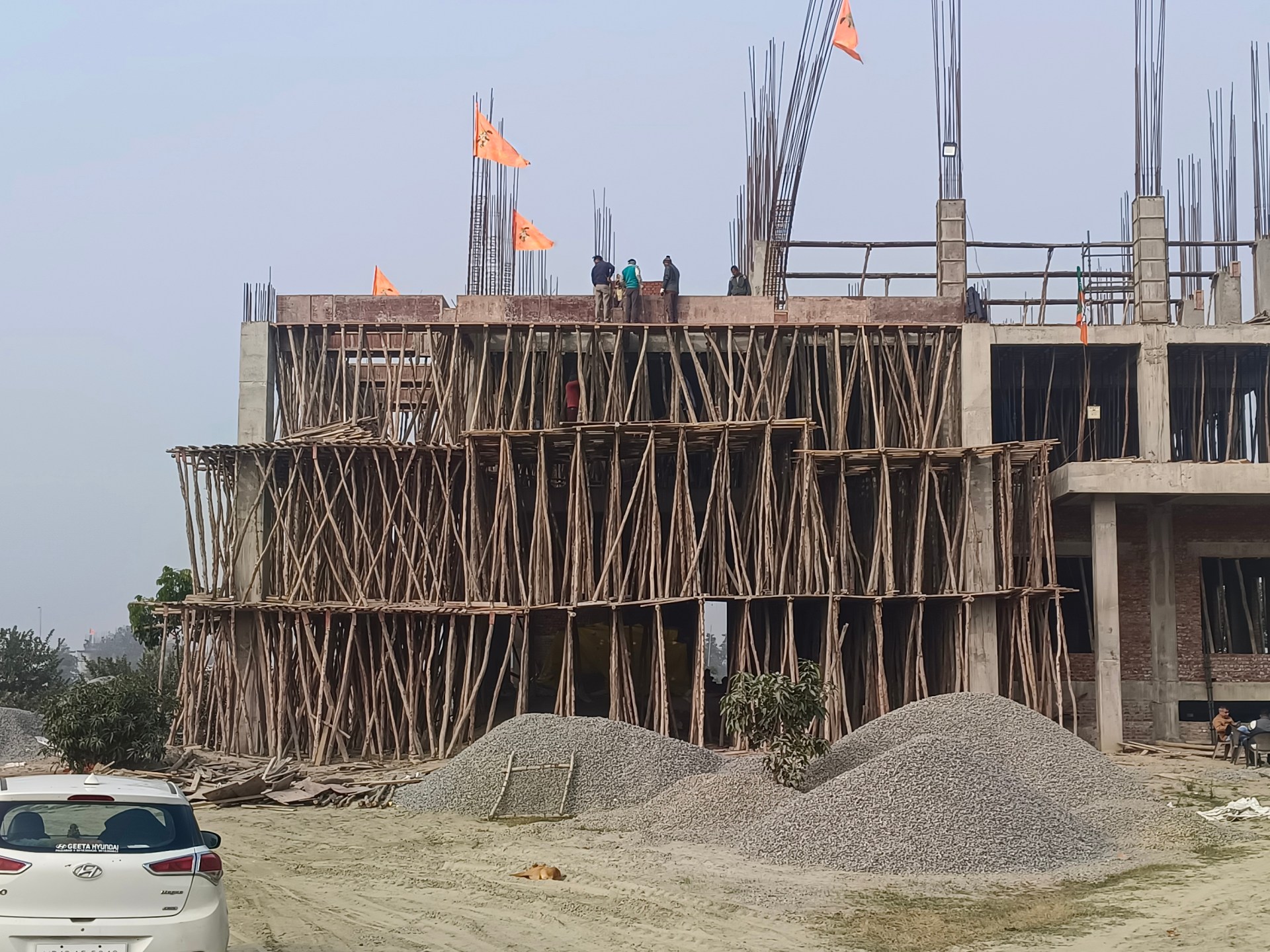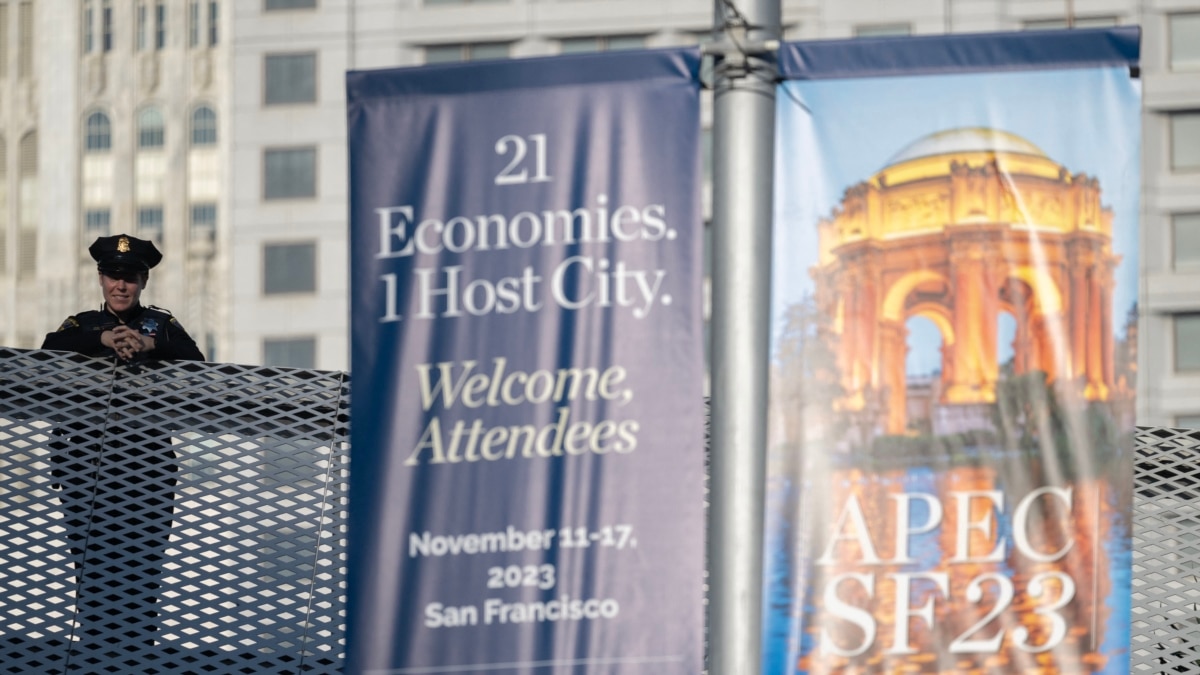
Ayodhya, India: Ram Surat Verma regrets his decision to sell his land in 2019.
A farmer in Takpura village in Ayodhya district in the northern Indian state of Uttar Pradesh, about 155 km (96 miles) from Lucknow, the state capital, he received 25 million rupees ($300,000) when he bought his 1.55 acres (0 .6 acre property sold I sold a property to a local real estate dealer four years ago.
The 65-year-old believes he could have received at least ten times that amount if he had delayed his decision until now.
“Land is more expensive than gold here and prices have increased since the Supreme Court gave its verdict for the construction of a Ram temple in 2019. I made the mistake of selling my land before the verdict. Had I delayed the land deal, it could have fetched me a far better price than what I got then,” Verma told Al Jazeera.
Verma, whose land holding lies 7 km (4.3 miles) from the temple, is yet to decide on selling his remaining 4.65 acres (1.88 hectares) of land. “The real estate agents and clients rush to my house every day and offer me lucrative prices for the property, but I will not repeat the same mistake again. A delay would certainly bring me a higher price,” he said.
Verma is not the only one taking a wait-and-see approach to selling his land. Several thousand farmers and landowners in Ayodhya district and adjoining areas are doing the same and are expecting exponential prices for their land, which is in massive demand, especially for the construction of commercial properties.
The real estate boom began after India’s Supreme Court, in its November 9, 2019 ruling, approved the construction of a temple to the Hindu god Ram on the disputed 2.77-acre (1.12-hectare) site in Ayodhya. The court also allocated a separate 5-acre (2-hectare) land near Ayodhya to the Muslims for building a mosque.
The ruling gave a boost to the political and religious movement that had been pushing for decades to build a temple at a site many Hindus believe to be the birthplace of Ram. But it also opened up new business opportunities for entrepreneurs who have started tapping investment opportunities in Ayodhya in anticipation of the millions of tourists who will visit the temple after its inauguration by Prime Minister Narendra Modi on Monday.
Vinay Kumar Verma, 33, a real estate dealer in Ayodhya, told Al Jazeera that his phone has been ringing off the hook for six months with people inquiring about the availability of land to build hotels.
“I used to get one or two calls every month asking for land for commercial use. But now I get eight to nine calls a day about it,” he said.
Some of these calls are from people from other states who are interested in building hotels and guesthouses to capitalize on the huge influx of pilgrims expected to visit the holy city, raising prices from 16 million rupees (US$190,000). ) per hectare of land in 2019 to now about 64 million rupees (US$770,000).
“And yet people are willing to pay more and expect huge returns when they invest in commercial properties like hotels and guesthouses,” Verma said. “The land here is actually four to five times more expensive than that in the state capital Lucknow.”
The days before Consecration on January 22nd Demand from tourists and pilgrims for hotel rooms has exploded in the temple districts – underpinning the business logic of real estate firms wanting to build more hotels in Ayodhya.
Most hotels are fully booked and have increased the prices of rooms even if they are available after the temple opens.
Jitendra Pandey, 41, who has been working as a real estate agent in Ayodhya for 12 years, said he has never seen such a rise in property prices. “Commercial property prices have increased four to five times as buyers have deep pockets and are willing to pay any price for the property. Even home prices have increased 2.5 times. Commercial rates are high because outsiders are not interested in setting up here but want to take advantage of much of the business opportunities,” he told Al Jazeera.
He said farmers are the main beneficiaries because not only do they receive exorbitant prices for the land, but some buyers also deal with them directly to avoid broker commissions.
Large real estate groups have also jumped in. Mumbai-based House of Abhinandan Lodha (HOABL) has acquired 25 acres (10 hectares) of land and plans to invest 12 billion rupees ($1.4 million) in Ayodhya to build a seven-star mixed-use enclave develop that will house luxurious facilities for buyers including a swimming pool, gym and banquet halls, among others.
According to local media reports, Bollywood superstar Amitabh Bachchan has booked a plot of around 929 square meters for 145 million rupees (US$17.43 million) for this upcoming project.
HOABL did not respond to Al Jazeera’s request for information about the new project.
The city is also witnessing a wave of modernization with star hotels such as Radisson Group’s Park Inn as well as malls and showrooms of multinational companies opening their outlets in recent weeks, including Tata Group’s luxury jewelry store Tanishq opening its showroom in the city in December.
A new community
Recognize the potential Ayodhya En route to becoming the spiritual center for millions of Hindus worldwide, the state government has acquired 1,407 acres (569 hectares) of land since 2020 to build Navya Ayodhya, or the new Ayodhya township, on the outskirts of the city.
Om Prakash Pandey, superintendent engineer at the Uttar Pradesh Housing and Development Board, told Al Jazeera that the entire township would be spread over 1,857 acres (751.5 hectares) of land, of which another 450 acres (182 hectares) would soon be acquired by farmers .
“It would be an eco-friendly community with all modern facilities and both residential and commercial complexes,” he said.
The state government, he added, bought the land from 1,200 farmers, paying 67.6 million rupees ($814,000) for 2.47 acres (1 hectare) of land. That is four times the minimum basic price for real estate set by the state government.
The state has allotted land to the states of Uttarakhand and Gujarat, both run by the BJP, to build guest houses in the community, Pandey told Al Jazeera.
“The entire township will be constructed at a cost of 65 billion rupees (US$78.23 million) and is expected to be completed by 2032. The first phase is expected to be completed by 2028 with an investment of 21.8 billion rupees (US$26.22 million),” he said.

Despite the government’s claim of offering four times the basic price for the land, farmers are still not happy with it.
Jhapsi Yadav, 40, a farmer and resident of Kallupurwa village whose land falls within the proposed township area, told Al Jazeera that the private buyers were willing to pay far more than the government price.
“The private buyers are willing to buy land at six to seven times the state government average price and even more if the land is close to the highway. But we have no choice but to sell the land to the state government chosen for the community. We are devastated but there is nothing we can do about it.”
The astronomical rise in land prices has puzzled even the officials of the Shri Ram Janmabhoomi Teerth Kshetra Trust, which is responsible for the construction of the Ram temple. “It is truly unthinkable that prices have risen so much in such a short period of time.
Local farmers should be careful in land transactions and only sell the land if they get good prices for it. But the investment would definitely help people earn a living locally,” said Sharad Sharma, media in-charge of the trust.
Allegations of assault

But the surge in property prices has also led to allegations of abuses by the Muslim community.
Md Azam Qadri, chairman of the sub-committee (Ayodhya) of the Sunni Central Waqf Board, said more than 200 properties of the Waqf Board, including graveyards, mosques and idgahs (places of public prayer), have already been encroached upon by the mafia – Real estate agents who have moved to the area in the last decade for commercial purposes, primarily to build guesthouses and hotels.
“Since 1992, when the Babri Mosque in Ayodhya was demolished, there have been minor encroachments on our properties, especially graveyards and idgahs. But attacks have increased in the last five years since the Supreme Court verdict allowing the temple to be built on the disputed land…mainly by outsiders trying to set up their business here.”
Qadri said he had written to senior district officials, Chief Minister Yogi Adityanath and Prime Minister Modi complaining about the issue and seeking their intervention, but no action had been taken yet. “The chief minister had promised strict action against land grabbers, but officials have not taken any action on the matter.”
Vishal Singh, vice-chairman of Ayodhya Development Authority (ADA), said he has not received any complaints in this regard.






Recent Comments